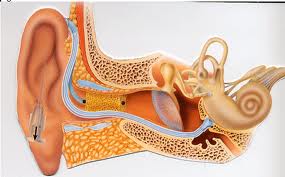Sudden hearing loss also known as sudden sensorineural hearing loss (SSNHL) is a medical condition characterized by a decline in hearing by ≥20dB for a period of three days or less if the cause of the problem is unidentifiable. As opposed to conductive hearing loss which occurs in the external or middle ear, SSNHL takes place on the inner ear. It is also referred to as nerve hearing loss.
An inner ear hearing loss can occur in the cochlea, the auditory nerve, in the brainstem or even the auditory cortex – the part of the brain which interprets sound. It has been discovered that inner ear hearing loss usually affects just the cochlea with both the external and middle ear canal remaining normal.
Symptoms
Sudden loss of hearing SNHL never comes with too many symptoms. However, the symptoms will always be well pronounced.
The first major symptom is usually sudden hearing loss in one ear. Another symptom that has been reported by a majority of casualties is ringing in the ear also known as Tinnitus. Fullness in the affected ear may or may not be present. Pain has also been reported but only in rare cases. True spinning (vertigo) is also a possibility.
Sudden Hearing Loss Causes
As the name suggests, sudden hearing loss is just sudden, it literally has no known causes. However, study is underway and researches are ongoing to uncover the causes and cure of the condition. Three things are suspected to cause sudden hearing loss; viral infection of the inner ear, tears in the cochlea membrane and blood flow complications of the inner ear.
- A viral infection can cause inflammation to the auditory nerve. When this happens, the inner structure of the ear is tampered with which could lead to hearing loss.
- The inner ear (cochlea) consists of fine, soft and very delicate membranes that carry fluid filled spaces. The movement of the fluid within these spaces is what causes sound. A tear of the cochlea membrane would adversely affect the delicate process by; allowing the fluids to mix; causing a loss in fluid charge potential; and making it impossible for the ear to generate nerve pulse. Most cochlea membrane tears are hereditary.
- Fluid dynamic problems simple refer to an abnormal flow of blood to the cochlea. Arteriosclerosis is a known cause of such abnormal flow. This problem is more common in the elderly though the younger populations who use birth control pills are also at risk.
Diagnosis
When you visit a doctor over a hearing loss complain, the first step is usually to obtain a hearing test. This step aims at determining the cause of the condition, the type of hearing loss and the degree of the damage. If presence of SSNHL is confirmed, a series of scans will follow.
Can recovery be a possibility? Yes, recovery is possible. The recovery rates range from 5% to 90% and two thirds of all patients who visit a doctor in time will always recover hearing to some extent.
Treatment
Treatment of sudden hearing loss depends on the results of the scans and examinations. One of the most common medications is steroids, most notably prednisone. Treatments are however best started as early as possible. Patients of SSNHL are expected to place liberty hearing aids on the affected ear at all times.


